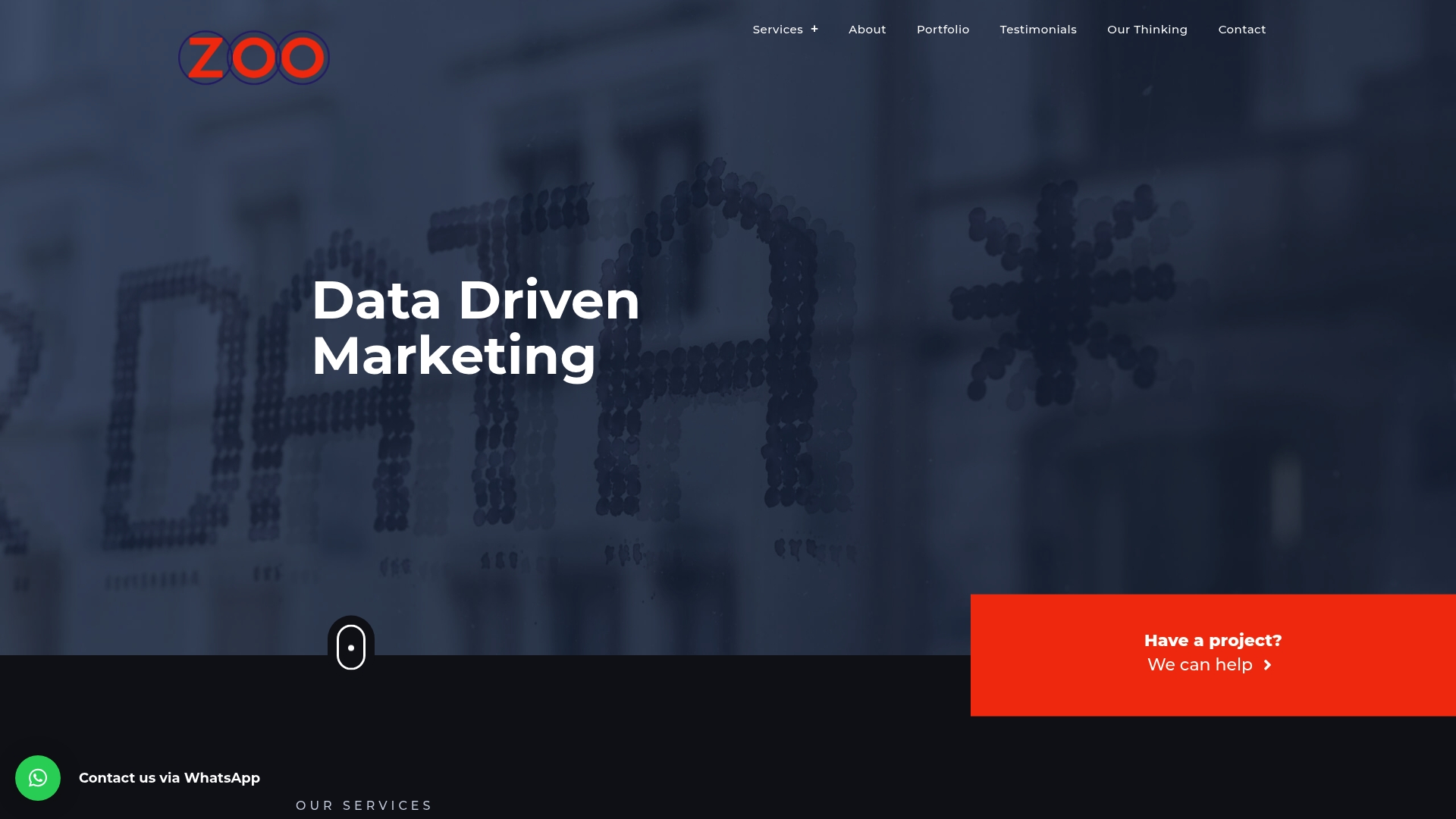Influencer marketing is changing how brands connect with everyday people. South African businesses using influencer marketing have seen up to a 70 percent increase in campaign engagement versus standard ads. Most assume that working with influencers is just for giant brands with big budgets. Small businesses are now finding their most loyal customers by teaming up with trusted local voices, proving that authentic connections count more than massive followers.
Table of Contents
- Defining Influencer Marketing And Its Role
- The Importance Of Influencer Marketing For Small Businesses
- Understanding The Mechanics Of Influencer Partnerships
- Key Concepts In Influencer Marketing: Reach And Engagement
- Trends Shaping The Future Of Influencer Marketing
Quick Summary
| Takeaway | Explanation |
|---|---|
| Influencer marketing enhances brand authenticity. | Collaborating with trusted personalities creates relatable endorsements, fostering deeper connections with consumers. |
| Micro-influencers offer higher engagement rates. | Smaller influencers generally maintain closer relationships with their audiences, leading to increased trust and interaction. |
| Cost-effective strategies benefit small businesses. | Influencer partnerships enable businesses to reach target audiences with less financial investment than traditional advertising. |
| Partnerships should be mutually beneficial. | Clear agreements define compensation and expectations, facilitating successful collaborations between brands and influencers. |
| Focus on meaningful metrics over reach. | Prioritising engagement metrics helps brands build genuine interactions, making influencer marketing more impactful. |
Defining Influencer Marketing and Its Role
Influencer marketing represents a strategic digital communication approach where brands collaborate with individuals who possess significant social media following and credibility within specific niches. These digital personalities leverage their authenticity and audience trust to promote products or services, creating a more personalised and engaging marketing experience.
Understanding the Essence of Influencer Marketing
At its core, influencer marketing transforms traditional advertising by replacing corporate messaging with genuine human recommendations. Social media research demonstrates that consumers are more likely to trust recommendations from individuals they perceive as relatable and authentic compared to traditional corporate advertisements.
Key characteristics of influencer marketing include:
- Direct engagement with targeted audience segments
- Leveraging personal storytelling and genuine experiences
- Creating content that feels organic and less commercially driven
Strategic Value for Modern Businesses
Influencers serve as crucial bridge builders between brands and potential customers. By selecting influencers who align closely with brand values and target demographics, businesses can achieve precise audience targeting. Read more about our digital marketing strategies to understand how such targeted approaches can transform marketing effectiveness.
The strategic approach involves careful selection of influencers based on:
- Audience demographics and alignment with brand persona
- Content quality and engagement rates
- Authenticity and previous collaboration history
By integrating influencer perspectives, brands can humanise their marketing efforts, transforming cold corporate communications into warm, trustworthy conversations that resonate deeply with potential customers.
The Importance of Influencer Marketing for Small Businesses
Small businesses face unique challenges in digital marketing, where limited budgets and competitive landscapes demand innovative and cost-effective strategies. Influencer marketing emerges as a powerful solution, enabling these businesses to amplify their brand visibility and connect with targeted audiences more authentically and efficiently.
Cost-Effective Brand Exposure
Research highlights that influencer marketing provides small businesses with an unprecedented opportunity to achieve significant marketing reach without substantial financial investment. Unlike traditional advertising channels that require considerable monetary commitments, influencer collaborations offer more flexible and scalable marketing approaches.
Key advantages for small businesses include:
- Reduced marketing expenditure compared to traditional advertising
- Direct access to niche and engaged audience segments
- Enhanced brand credibility through trusted recommendations
Building Meaningful Audience Connections
Influencer partnerships allow small businesses to transcend typical marketing barriers by leveraging the personal connections and trust established by social media personalities. Learn more about our digital marketing strategies to understand how targeted collaborations can transform your business outreach.
Small businesses can benefit by focusing on:
- Identifying influencers aligned with brand values
- Developing authentic collaborative content
- Measuring engagement and conversion metrics
The strategic approach involves understanding that micro-influencers often provide more genuine and cost-effective marketing opportunities compared to high-profile personalities. These smaller-scale influencers typically maintain more intimate connections with their audiences, translating into higher trust and engagement rates for small business marketing efforts.
Understanding the Mechanics of Influencer Partnerships
Influencer partnerships represent a sophisticated collaborative process that goes beyond simple product promotion, involving strategic alignment between brands and digital content creators who can authentically represent product value and connect with specific audience segments.
Identifying and Selecting Appropriate Influencers
Marketing research indicates that successful influencer partnerships depend critically on precise audience and content alignment. Brands must conduct thorough evaluation of potential influencer partners based on multiple sophisticated criteria.
Key selection considerations include:
- Audience demographic match with brand target market
- Content authenticity and engagement metrics
- Previous collaboration performance and brand compatibility
- Consistency of messaging and values
For brands considering influencer partnerships, this table organises the critical factors to evaluate when selecting suitable influencers, based on information discussed in the article.
| Factor | Description | Why It Matters |
|---|---|---|
| Audience Demographic Match | Alignment of influencer’s followers with brand’s target market | Ensures marketing reaches relevant people |
| Content Authenticity | How genuine and personal the influencer’s posts feel | Builds credibility and audience trust |
| Engagement Metrics | Level of interaction (likes, comments, shares) on influencer’s content | Indicates audience interest and influence |
| Previous Collaboration History | Record of prior partnerships and their success | Reveals influencer reliability and compatibility |
| Consistency with Brand Values | Similarity in values, messaging and style between influencer and brand | Strengthens authentic brand representation |
Structuring Collaborative Agreements
Effective influencer partnerships require clear, mutually beneficial contractual frameworks that define expectations, deliverables, and compensation models. Explore our comprehensive digital marketing approach to understand nuanced partnership strategies.
Critical elements of partnership agreements encompass:
- Detailed content creation guidelines
- Performance measurement metrics
- Compensation structures
- Disclosure and legal compliance requirements
Successful influencer partnerships transform traditional marketing by creating narrative-driven experiences that feel more like genuine recommendations than conventional advertisements. The most effective collaborations emerge when brands and influencers share authentic connections and mutual understanding of audience expectations.
Key Concepts in Influencer Marketing: Reach and Engagement
Influencer marketing fundamentally relies on two critical metrics that determine the effectiveness of digital communication strategies: reach and engagement. Understanding these concepts allows brands to evaluate and optimize their influencer collaboration efforts with precision and strategic insight.
Decoding Reach in Digital Contexts
Research reveals that reach represents the total number of unique individuals exposed to an influencer’s content, serving as a foundational metric for potential brand visibility. This metric goes beyond simple follower count, encompassing the actual potential audience that might interact with or be influenced by specific content.
Key components of reach include:
- Total follower base of the influencer
- Potential secondary audience through content sharing
- Platform-specific algorithmic content distribution
- Demographic alignment with brand target market
Understanding Engagement Dynamics
Engagement transcends passive content consumption, measuring active audience interaction through likes, comments, shares, and other meaningful digital responses. Learn more about our digital marketing terminology to deepen your understanding of these crucial metrics.
Critical engagement indicators encompass:
- Comment quality and depth
- Share and repost frequencies
- Direct message interactions
- Click-through rates on embedded links
The most successful influencer marketing strategies recognize that high engagement rates often correlate more strongly with genuine audience influence than raw reach numbers.
To help clarify the key differences between reach and engagement in influencer marketing, the following table compares their definitions, indicators, and strategic significance.
| Concept | Definition | Key Indicators | Strategic Significance |
|---|---|---|---|
| Reach | Total unique individuals exposed to influencer content | Follower base, content shares, algorithmic distribution | Determines brand visibility and potential audience size |
| Engagement | Active audience interaction with content | Comments, likes, shares, click-through rates | Reflects audience trust and genuine impact |
 By prioritizing meaningful interactions over superficial metrics, brands can create more authentic and impactful digital marketing experiences.
By prioritizing meaningful interactions over superficial metrics, brands can create more authentic and impactful digital marketing experiences.
![]()
Trends Shaping the Future of Influencer Marketing
The landscape of influencer marketing continues to evolve rapidly, driven by technological advancements, changing consumer behaviors, and sophisticated digital communication strategies. Brands must anticipate and adapt to emerging trends to maintain competitive advantage in this dynamic marketing ecosystem.
Technology-Driven Transformation
Global marketing research indicates that artificial intelligence and advanced analytics are revolutionizing influencer marketing, enabling more precise targeting and performance prediction. Digital platforms now offer unprecedented capabilities for measuring and optimizing influencer collaborations.
Key technological developments include:
- Artificial intelligence-powered influencer matching
- Real-time performance analytics
- Advanced audience segmentation tools
- Predictive engagement modeling
Authenticity and Ethical Considerations
Explore our insights on modern marketing strategies to understand the nuanced landscape of digital communication. Emerging trends demonstrate a significant shift towards transparent and value-driven influencer partnerships that prioritize genuine audience connections over superficial promotional tactics.
Emerging ethical trends encompass:
- Greater emphasis on disclosure and transparency
- Stricter regulatory compliance
- Enhanced audience trust mechanisms
- Diversity and representation in influencer selection
Successful brands recognize that future influencer marketing transcends traditional advertising, becoming a sophisticated dialogue between content creators, brands, and audiences. The most effective strategies will integrate technological innovation with genuine human storytelling.
Ready to Experience the Real Impact of Influencer Marketing?
Navigating influencer marketing can feel overwhelming. As highlighted in the article, many businesses struggle with finding the right digital voices, knowing how to measure real reach and engagement, and building authentic connections without wasting precious resources. These challenges often stand in the way of results and make it tough to compete online.
Explore our expertise to see how Zoo Digital transforms these obstacles into real opportunities.

Your brand deserves influencer collaborations that deliver trust and measurable growth. With our data-driven approach, tracking solutions, and campaign management, you can experience influencer marketing that is targeted and transparent. Let Zoo Digital help you bridge the gap between meaningful engagement and tangible results. Learn more or get started with Zoo Digital and see your brand connect with audiences who matter most, today.
Frequently Asked Questions
What is influencer marketing?
Influencer marketing is a strategic approach where brands collaborate with individuals who have a significant social media following to promote products or services through genuine recommendations.
How can small businesses benefit from influencer marketing?
Small businesses can leverage influencer marketing for cost-effective brand exposure, building authentic connections with audiences, and enhancing credibility without significant financial investment compared to traditional advertising.
What should brands consider when selecting influencers?
Brands should consider factors such as audience demographic alignment, content quality and engagement rates, authenticity, and the influencer’s previous collaboration history to ensure a successful partnership.
What are the key metrics to evaluate in influencer marketing?
The two critical metrics in influencer marketing are reach, which measures the total number of unique individuals exposed to content, and engagement, which gauges active audience interaction through likes, comments, and shares.
Recommended
- Digital Marketing Terms Explained for Small Businesses 2025 – Zoo Digital
- How to Build a Marketing Strategy for Small Businesses in 2025 – Zoo Digital
- Digital Marketing for Beginners: 2025 Guide for Small Businesses – Zoo Digital
- How to Use Marketing Analytics for Small Businesses in 2025 – Zoo Digital

